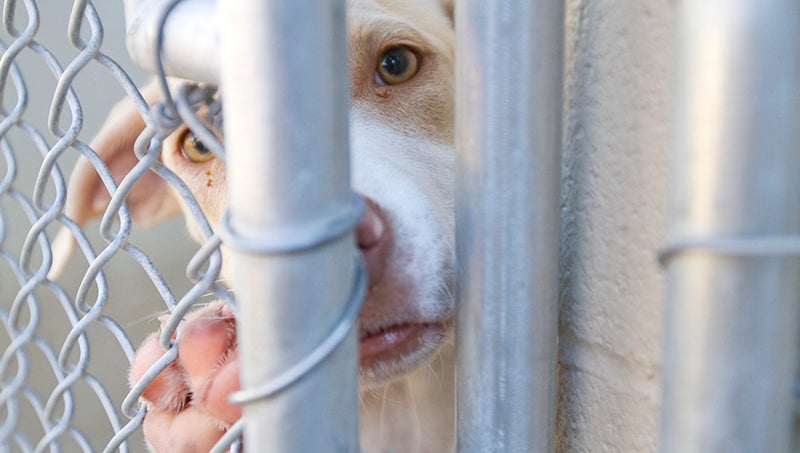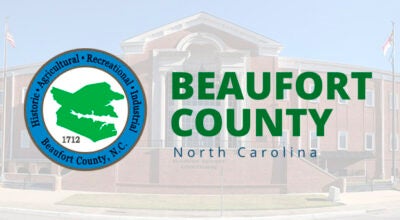Appointment-only adoptions, rescues at local shelter
Published 6:16 pm Thursday, April 2, 2020
|
Getting your Trinity Audio player ready...
|
At the Betsy Bailey Nelson Animal Control Facility, it’s business as usual, with one exception — those of a mind to adopt or rescue must make an appointment to do so.
Like many county offices, the animal shelter has had to modify its operations to encourage social distancing and avoid the spread of COVID-19.
“The animal shelter is up and running as normal with the exception of the public coming into the building freely,” Beaufort County Emergency Services Director Carnie Hedgepeth wrote in an email. “As with all county facilities, we are accepting visitors for business by appointment only. Setting an appointment allows our employees to try to answer questions on the phone and screen citizens before they come to the shelter to make sure they are not experiencing any symptoms of sickness. For the shelter specific, citizens may call and schedule an appointment to view animals for adoption. These visits will be limited to two people at a time to minimize exposure.”
According to Marty Poffenberger, a local veterinarian and president of the Humane Society of Beaufort County, those looking for a lost pet need to call the shelter within the first days that pet is missing.
“The rescue groups are continuing to step up and pull animals that need (to be) placed, but if an owner is missing their pet, they need to reach out to the shelter within the first 72 hours,” Poffenberger wrote.
Under the provisions of Gov. Roy Cooper’s stay-at-home order that went into effect on Monday, veterinarians and the services they provide are considered essential, according to a March 28 letter from State Veterinarian Doug Meckes, DVM.
“The North Carolina Department of Agriculture and Consumer Services advises that veterinarians, under the umbrella of the Veterinary Patient Client Relationship, engaged in food animal production and rendering of care to livestock, including horses, continue in those activities as needed for the health and welfare of the production animals and livestock for which they are responsible,” Meckes wrote.
The NCDA&CS says services provided by veterinarians to companion animals are also essential, but should be limited to companion animals that require frequent follow-up/care visits, those that are sick and those that require emergency services.
“The veterinarian in charge of the case will determine which treatments and services are essential for their respective patients,” Meckes wrote. “Non-essential visits, those that can be reasonably postponed given the health of the patient, and elective procedures should be delayed.”






